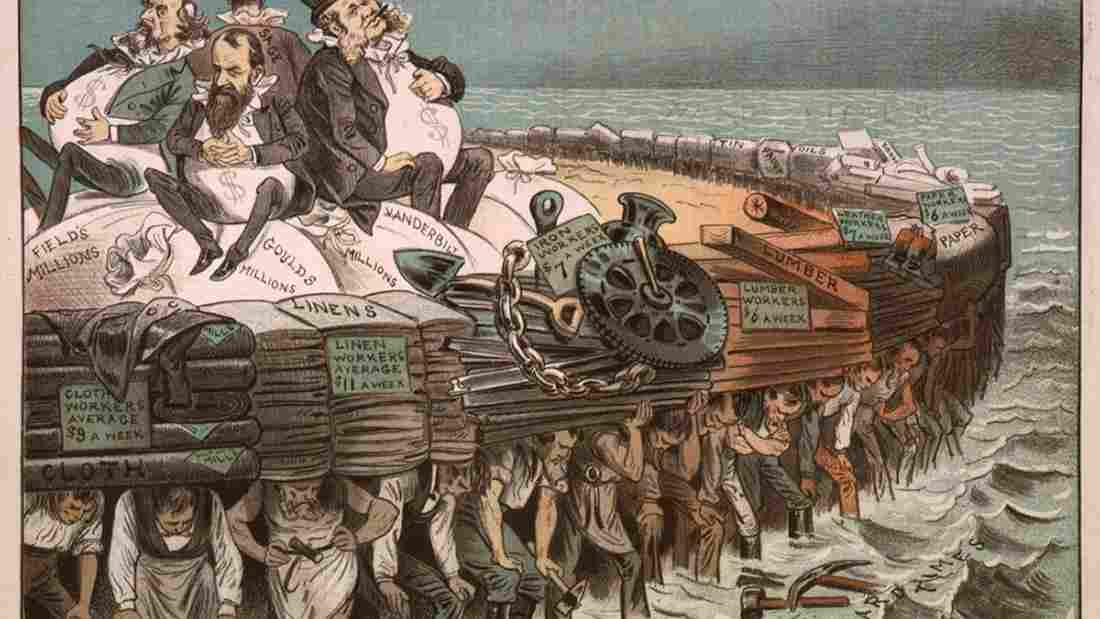Burguiouse: From Medieval Roots to Modern Influence
In today’s fast-changing social landscape, the term “burguiouse” emerges as a modern twist or perhaps a misinterpretation of the historically significant concept of “bourgeoisie.” This article takes a closer look at the origins, evolution, and contemporary relevance of the bourgeoisie, examining how its foundational ideas continue to shape our society.
The Historical Roots of the Bourgeoisie
The term “bourgeoisie” initially referred to the middle class in medieval French society, which included merchants, artisans, and traders residing in the bourgs, or market towns. This social class began to take shape during the feudal era, existing between the peasantry and the nobility. The word “bourgeois” comes from the Old French term for a town dweller, highlighting the urban and commercial roots of this class.
The Role of the Bourgeoisie in Industrialization
As Europe moved into the industrial age, the bourgeoisie gained substantial economic influence by taking control of the means of production. During this time, they became strong advocates for industrial progress and capitalism, significantly altering societal structures and laying the groundwork for contemporary economic systems. By owning factories, machinery, and eventually corporate shares, the bourgeoisie established themselves as the key class propelling industrial and economic growth.
Bourgeoisie in Marxist Theory
Karl Marx offered a critical examination of the bourgeoisie’s role, depicting it as the class that exploits the proletariat, or working class. In Marxist thought, the bourgeoisie’s control over the means of production enables it to uphold its power and sustain capitalist systems. Marx argued that this dynamic fosters class conflict and societal unrest. This viewpoint positions the bourgeoisie not only as an economic force but also as a significant player in the social and political landscapes of modern history.
Cultural and Social Implications
In addition to its economic clout, the bourgeoisie has played a significant role in shaping culture. Throughout literature and art, the values associated with the bourgeoisie—such as materialism and the pursuit of individual success—have been both celebrated and scrutinized. Particularly during the 19th and 20th centuries, there was a surge of literary works that explored the moral and existential challenges of the bourgeois lifestyle, highlighting its influence on personal identities and societal norms.
Modern Reflections on Burguiouse
In contemporary discourse, the concept of the bourgeoisie—sometimes referred to intriguingly as “bughouse”—remains relevant in discussions about social class, economic inequality, and cultural identity. As we navigate an era characterized by globalization and digital economies, examining the historical evolution and lasting impact of bourgeois ideologies becomes essential for understanding the intricate social hierarchies and economic issues that challenge modern societies.
Origins
The term “Burguiouse” originated in medieval Europe, where it referred to the emerging middle class, especially those involved in trade and industry. This group occupied a distinct social status, falling neither within the aristocracy nor among the peasantry. Instead, they were crucial contributors to economic activities and typically lived in urban areas, which served as bustling centers of commerce.
The significance of this class grew notably during the 11th and 12th centuries, as trade flourished throughout Europe. Merchants, traders, and artisans became essential to economic growth, actively shaping the development of towns and cities. In many respects, the Burguiouse played a foundational role in establishing the early capitalist system.
Evolution
Over the centuries, the Burguiouse evolved significantly in terms of both status and influence. With the advent of capitalism, industrialization, and urban growth, the term acquired new dimensions. By the 18th and 19th centuries, the Burguiouse were recognized as the key drivers of industrial progress and economic development.
During this transformative era, thinkers like Karl Marx and Max Weber examined the Burguiouse in detail. Marx, in particular, characterized them as the dominant class within capitalist societies, arguing that their control over the means of production enabled them to exert power over the working class, or “proletariat.” This distinction between the Burguiouse and the proletariat became a foundational element of Marxist theory, highlighting the class struggles that shaped much of modern history.
Power
By the time the Industrial Revolution reached its peak, the Burguiouse had firmly established itself as a leading social class. They evolved beyond their initial roles as traders and merchants to become factory owners, bankers, and industrialists. This newfound economic power allowed them to wield significant political influence, shaping policies that aligned with their interests.
However, the Burguiouse faced considerable criticism. Many viewed them as exploiters of the working class, placing profits above the well-being of individuals. This critique gained traction particularly within socialist and communist ideologies, where the Burguiouse was frequently depicted as the main obstacle to achieving social equality.
Modern Context
Today, the term “Burguiouse” remains relevant, though its meaning has evolved to encompass a broader spectrum. While it still refers to the middle and upper classes, it now includes a wider array of roles within society and the economy. The term is frequently used to describe those who possess power and wealth within capitalist frameworks.
In modern discourse, the Burguiouse can denote various social and economic roles, including business owners and professionals in sectors such as law, healthcare, and finance. These individuals typically enjoy higher levels of education and have access to resources that help them sustain their societal status.
Influence
A key feature of the contemporary Burguiouse is their significant impact on both the economy and culture. They often shape trends, establish norms, and steer consumer preferences. With their considerable wealth, they have the means to invest in various industries, back political campaigns, and sway policies that serve their interests.
However, this influence is not without its critics. Many argue that the Burguiouse perpetuate the exploitation of the working class by maintaining economic disparities. They point to issues such as income inequality, limited access to education, and the accumulation of wealth in the hands of a few as evidence that the Burguiouse continue to thrive at the expense of others.
Globalization
In the age of globalization, the concept of the Burguiouse has expanded significantly. The emergence of multinational corporations and the interconnectedness of global markets have broadened the definition to include individuals and organizations that operate on an international level.
These global elites wield substantial power, not only within their own nations but also across international borders. They shape global trade policies, dominate major industries, and influence economic trends that have far-reaching effects on millions around the globe. Consequently, the Burguiouse class frequently finds itself at the heart of discussions surrounding globalization, economic inequality, and social justice.
Culture
The Burguiouse has significantly impacted culture beyond just economics and politics. In numerous societies, their tastes and preferences influence a wide range of areas, including fashion and entertainment. The consumption habits of the Burguiouse often dictate trends that many people adopt, positioning them as cultural tastemakers.
However, this influence has not been without its detractors. Critics argue that the Burguiouse fosters a culture of materialism and consumerism, overemphasizing wealth and social status. Additionally, some contend that their dominance in cultural spheres can stifle diversity and creativity, resulting in a more homogenized cultural landscape.
Challenges
Although the Burguiouse continues to wield considerable influence, they face various challenges in today’s fast-evolving environment. Factors such as technological advancements, economic downturns, and changing political dynamics are compelling the Burguiouse to adapt.
For example, the emergence of automation and artificial intelligence poses a threat to many industries that the Burguiouse have traditionally controlled. Economic downturns and financial crises have revealed vulnerabilities in the systems that sustain their wealth and power.
Additionally, the increasing demand for social justice and economic equity has brought heightened scrutiny to the Burguiouse and their role in maintaining inequality. Movements like Occupy Wall Street and worldwide protests against income disparity have drawn attention to the gaps between the Burguiouse and the broader society, advocating for reforms that could fundamentally alter the future of this class.
Future
As we look to the future, the role of the Burguiouse is expected to keep evolving. With societies becoming increasingly interconnected and economies growing more intricate, the Burguiouse will encounter a fresh set of challenges and opportunities. They will need to navigate changes in technology, shifts in political dynamics, and the rising demand for social justice.
Nevertheless, the Burguiouse will likely maintain their status as a crucial force in shaping society’s future. Their impact on economics, politics, and culture will continue to resonate for generations ahead.
FAQs
What does the term “Burguiouse” refer to?
The term “Burguiouse” originally denoted the middle class in medieval Europe, particularly those involved in trade and industry. Today, it encompasses a broader range of individuals and groups who hold economic and social power within capitalist systems.
How did the Burguiouse influence society during the Industrial Revolution?
During the Industrial Revolution, the Burguiouse emerged as a dominant social class, transitioning from merchants to factory owners and industrialists. Their economic power translated into political influence, allowing them to shape policies that aligned with their interests.
What criticisms are associated with the Burguiouse?
Critics argue that the Burguiouse exploits the working class, contributing to economic inequality. Issues such as income disparity, lack of access to education, and wealth concentration are often cited as evidence of their detrimental impact on society.
How has globalization affected the Burguiouse?
In the context of globalization, the Burguiouse has expanded to include global elites who operate on an international scale. These individuals and entities influence global trade policies and economic trends, often being at the center of discussions regarding economic inequality and social justice.
What cultural impact does the Burguiouse have today?
The Burguiouse significantly influences culture, shaping trends in fashion, entertainment, and consumer behavior. However, their dominance is sometimes criticized for promoting materialism and stifling cultural diversity.
What challenges does the Burguiouse face in the modern world?
Today’s Burguiouse confronts various challenges, including technological advancements, economic crises, and increasing demands for social justice. Movements advocating for income equality and reforms have led to greater scrutiny of their role in perpetuating societal disparities.
Conclusion
The concept of the Burguiouse has evolved significantly from its medieval roots, reflecting changes in society, economy, and culture. While this class has historically wielded considerable power and influence, it also faces modern challenges that require adaptation and introspection. As we move forward, the Burguiouse will continue to shape the future of our world, navigating the complexities of globalization, technological advancement, and the push for greater social equality. Understanding their role in society helps illuminate the ongoing dynamics of power and class in our ever-changing landscape.
Stay engaged for the latest news and alerts! Hawaii Times






